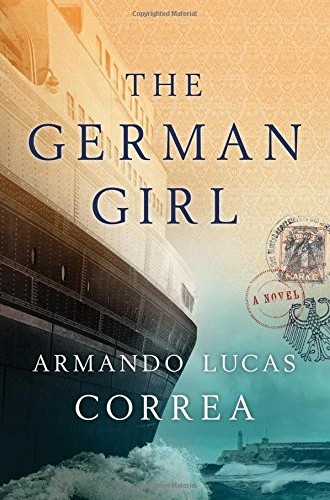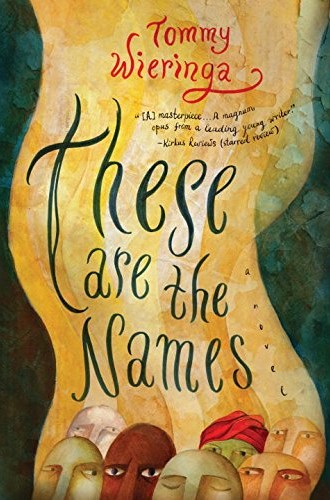No place to lay their heads
Two compelling novels reveal the horrors of forced displacement.
Armando Lucas Correa’s new novel isn’t flawless, but it’s an engaging work of historical fiction that tugs at the conscience. Its primary storyline chronicles the journey of two Jewish families who flee Nazi Germany in 1939 after being promised asylum in Cuba. At the center are the charmingly intelligent 12-year-old Hannah Rosenthal and her moody best friend Leo Martin. As the ship approaches Cuba, the promise of safe passage crumbles. The passengers, moored between countries, face difficult questions about how to live into a future in which they are likely to be killed.
The story plays with various layers of identity, both internal and external. Before she leaves Germany, Hannah is often mistaken for a Christian:
It was hard for the Ogres to spot what I was. I could sit on the park benches forbidden to us and could enter tram carriages reserved for the pure race. If I’d wanted to, I also could have bought a newspaper. Leo used to say I was able to pass for anyone. I didn’t have any mark on the outside, although inside I had the stigma from all four grandparents that the Ogres detested so much.
In one instance, Hannah mistakenly becomes the cover girl for a Nazi propaganda magazine. But identity runs deeper than appearance. A Christian neighbor mutters at her in the elevator: “dirty people.” As Hannah is chaotically separated from her father at the end of the ship’s journey, his last words to her are “forget your name!”—as if she could shed her Jewish identity simply by changing her name.
“These are the names of the sons of Israel who went to Egypt with Jacob, each with his family . . .” begins the first chapter of Exodus. Tommy Wieringa’s novel, whose title is taken from this verse, is set in an unspecified Eurasian landscape in an era that resembles our own. Police chief Pontus Beg patrols his border town as a group of starving refugees travel toward him across the wintry steppe. While Beg explores his religious heritage with a rabbi who is the town’s only remaining Jew, conflicts arise among the approaching migrants. The novel’s brilliance is in its juxtaposition of the two storylines.
Beg, when he learns that his mother was an assimilated Jew who had hidden her Jewish identity, wonders if he should covert. “If he were converted, he would have to be circumcised. There was no doubt about that; the Everlasting demanded it. . . . The Everlasting wanted to place a brand on the bodies of his people.” But he continues to be drawn toward Judaism and the redemption it might hold for him. Contemplating the mikvah, he marvels that “before he had known about the holy place deep in the earth, he had still thought that some filth could never be washed away. Maybe it wasn’t like that.” His religious quest unfolds at a leisurely pace.
Meanwhile, desperation increases rapidly among the refugees. One day, the youngest of the migrants is horrified to see one of his companions eating dirt.
To his dumb amazement, he saw that she had scooped up a handful of wet earth and was eating it. Sand stuck to her lips. She swallowed with difficulty and took another bite. The boy seized her by the shoulders, his face contorted in disgust. ‘Stop that!’ She ignored him. ‘You can’t eat sand! People don’t eat sand!’ The woman wiped her lips.
Inky clouds rolled together and parted again above their heads. The boy walked on alone once more, heavy with gloom. They were doomed. There was no hope for them anymore. Yet still, yet still. Inside him was the strange conviction that he would survive. He would be among the saved.
In the end, the characters collide in a way that is both brutal and redemptive. Finally, most of the refugees—who are unnamed through the bulk of the novel—are named.
It’s difficult to compare a historical fictional world that portrays the horrors of Nazi Germany with a narrative fantasy world that vaguely but accurately represents the very worst of our own society. The German Girl is beautifully sad, compelling with a tinge of regret-filled helplessness. But the barrier of historic distance keeps me from implicating myself in the storyline. I wasn’t there; I didn’t participate in Hitler’s regime; I wasn’t alive in 1937 when the United States followed Cuba in turning away a ship full of desperate Jewish refugees.
I don’t have such luxury of distance with These are the Names. The exquisite, heartbreaking prose merges with the images I see on my screens of unnamed people displaced by war. And I wonder how to define my relationship to those who are currently fleeing places like Aleppo; how to name my own role in the worldwide crises that hover at the edge of my consciousness.
This Advent I heard many Christians calling for hospitality to refugees, recalling that Jesus and his family became refugees as they fled from Herod’s murderous plans. That reminder was helpful to me in the same limited way that these two novels are helpful—but I’m still not sure what it would look like, concretely, for me to welcome a stranger into my midst. If the best novels are those that cause us to ask ethical questions of ourselves, both of these books have done their job.







